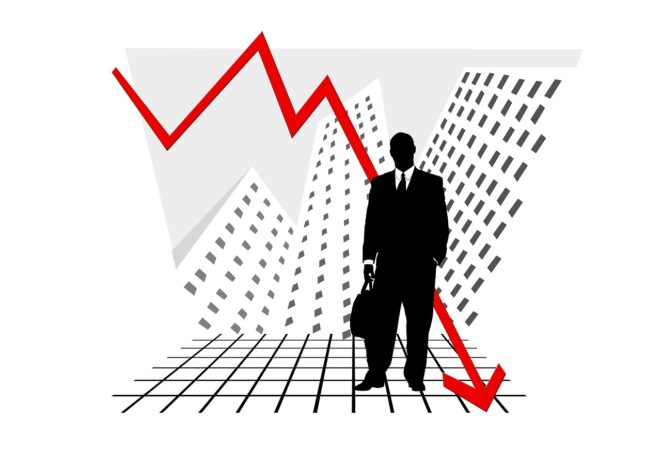A new report by International Monetary Fund (IMF) shows reduced rate of global economic growth at 4.4 percent, lower than its earlier prediction of 4.9 percent. The report states that the larger than expected lockdowns in United States (U.S) and China are responsible for this reduction.
“We project global economic growth this year at 4.4 percent, 0.5 percentage point lower than previous forecast, mainly because of downgrades for the United States and China,” Gita Gopinath, IMF’s No. 2 official, wrote on her blog.
IMF is an organization of 190 member countries which works towards global monetary co-operation, financial security and international trade among other goals.
U.S and China are the two largest economies in the world and the slowdown of these two economies will affect the entire globe. Some reasons stated in the report were higher inflation, supply chain choke points, Covid-related shutdowns and worker shortages.
“The global economy enters 2022 in a weaker position than previously expected,” the report said.
IMF predicts that Omicron will have a negative impact on economic activity in the first quarter of this year (Q1FY22). It also states that the economy would ease up afterwards as the omicron variant is linked to less severe sickness. Gopinath further said that as the global lender updated its World Economic Outlook and escalating conflict between Russia and Ukraine might boost energy prices, maintaining headline inflation at elevated levels for longer.
Global economic growth is likely to decline to 3.8 percent in 2023, up 0.2 percentage points from the previous prediction in October, according to the IMF, with present growth drags expected to diminish in the second half of 2022. According to Gopinath, the pandemic is now expected to cause 13.8 trillion USD in economic losses by 2024, up from the prior estimate of 12.5 trillion USD.
Given the failure of U.S to pass a massive social and climate spending package, tightening of US monetary policy, and continued supply shortages, the IMF cut the growth forecast for the US by 1.2 percentage points. The US economy is expected to increase by 4 percent in 2022, down from 5.6 percent in 2021. According to IMF the growth will slow down to 2.6 percent in 2023.
“We are certainly living in very turbulent times,” Gopinath said in a statement as published in Reuters.
She added that there was still a “tremendous uncertainty” about how much the Federal reserve would raise interest rates and over what period of time. She also said that as long as the Federal reserve communicated clearly about its policy, rising interest rates should address financial market exuberance and usher in “a more orderly correction.”
The IMF cut China’s GDP prediction by 0.8 percentage point to 4.8 percent in 2022, down from 8.1 percent in 2021, with growth expected to pick up to 5.2 percent in 2023. The downgrade was triggered by pandemic-related disruptions due to China’s zero-tolerance COVID-19 policy and persistent financial stress among property developers, according to the IMF. The IMF also lowered its growth prediction for the European zone by 0.4 percent amounting to 3.9 percent growth in 2022. The growth in the region is predicted to slow down to 2.5 percent in 2023, according to the IMF.
The IMF lowered its growth forecasts for Brazil and Mexico too, which are Latin America’s two largest economies, by 1.2 percentage points apiece for 2022. Brazil is now seen growing 0.3 percent this year and Mexico 2.8 percent while the region is expected to grow 2.4 percent, 0.6 percent point below the previous forecast.
To decrease the likelihood of more dangerous COVID-19 mutations, the IMF said it was vital to maintain global access to vaccines, testing, and treatments, while many countries would need to hike interest rates to combat inflation.
Gopinath stated that 60 percent of low-income nations were already in or at high danger of debt distress, and she encouraged the Group of 20 to expedite debt restructuring processes and stop debt service payments while the restructurings were being negotiated.
With more than 70 million people shifting to life in extreme poverty during the pandemic, the fund also called for international co-operation for debt relief and more equitable distribution of Covid vaccines, tests and treatments in poorer nations.
Also Read: Indian economy is yet to get stable despite increase in last months: Report

3 Comments